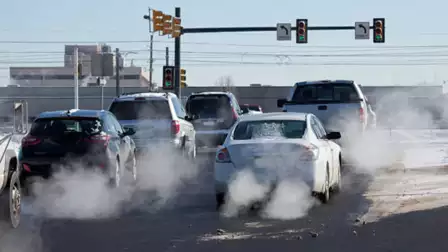Mumbai Considers Phased Diesel Ban to Combat Pollution
The Bombay High Court’s suggestion to phase out diesel-powered vehicles as a pollution-control measure has drawn cautious support from environmentalists and transport experts. This recommendation comes as Mumbai battles worsening air quality, with the Air Quality Index (AQI) persistently hovering between 150 and 180, signalling moderate to unhealthy pollution levels.
Experts attribute Mumbai’s air pollution primarily to vehicular emissions and construction activities. Despite government efforts to halt new construction projects and promote electric and hybrid vehicles, they argue that stronger interventions are necessary to prevent Mumbai from emulating Delhi’s severe pollution crisis. Stalin Dayanand, environmentalist and director of Vanashakti, highlighted diesel vehicles as a major contributor to air pollution. “Unless diesel cars and generators are banned, AQI levels will not improve. Immediate and stringent action is required to combat this crisis,” he stated. BN Kumar, director of NatConnect Foundation, supported a phased approach to the proposed ban. “It is a commendable step, but implementation should consider factors like vehicle age and pollution contribution.
Diesel vehicle owners must be incentivised to give up their cars, perhaps through subsidies or affordable CNG retrofit kits,” he suggested. Kumar also underscored the need for expanding the city’s CNG and EV charging infrastructure to ensure a seamless transition for motorists. AV Shenoy, co-founder of the Mumbai Mobility Forum, raised pertinent questions about the implementation of the ban. “How will the entry of diesel vehicles from outside Mumbai be regulated, especially with toll nakas closed? What about trucks and light commercial vehicles, which are significant polluters? Policymakers must clearly outline these details, along with providing a transition timeline of five to seven years,” he remarked.
Meanwhile, Mohammed Afzal, a transport expert, pointed to the Energy Transition Advisory Committee’s recommendation to ban diesel vehicles in high-pollution cities by 2027. This ambitious target includes retiring vehicles older than 10 years and discontinuing the sale of new diesel cars. “While this move could reduce emissions, it will have a profound impact on the automotive industry and vehicle owners,” he noted. However, some experts believe that the shift is already underway without government intervention. Rishi Aggarwal, Director of the Mumbai Sustainability Centre, remarked, “Major automakers have already begun phasing out diesel cars. Their market share has fallen from 36 percent in 2018 to 18 percent today. The transition to alternative fuel vehicles like CNG and EVs is happening organically.” As policymakers deliberate on implementing this suggestion, the focus remains on balancing environmental priorities with the economic realities of the automotive sector and consumers.


